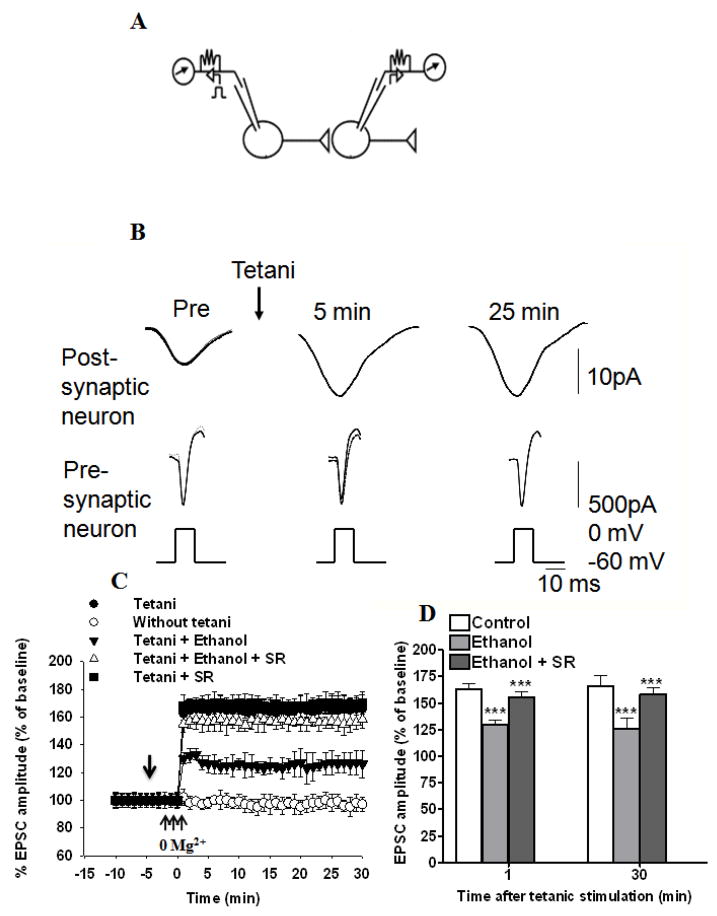Fig. 8.
Ethanol-induced inhibition of long-term enhancement of EPSC amplitude (synaptic plasticity) in cultured hippocampal neurons is antagonized by bath perfusion of SR141617A. (A) Experimental design. (B) Sample traces are shown before (Pre) and 5 and 25 min after tetanic stimulation of the presynaptic neuron. Three successive traces are superimposed at each time point. (C) Average potentiation by tetanic stimulation (three tetani of 50 Hz for 2 s at 20 s intervals during brief perfusion with a Mg2+ free medium) of the presynaptic neuron (n=6), tetanic stimulation paired with ethanol (50 mM) (n=6), tetanic stimulation paired with ethanol (50 mM) and SR141716A (SR) (2 μM) (n=6), and tetanic stimulation paired with SR141716A (2 μM) (n=6). EPSCs were produced in the postsynaptic neuron by step depolarization, which elicited an inward current in the presynaptic neuron every 60 s. Leakage has been subtracted from the current in the presynaptic neuron. Ethanol was added after recording the baseline (10 min) of 5 min duration; this did not alter the baseline recordings. Ethanol was continuously perfused throughout the experiments (35 min). EPSC amplitudes were normalized to the average value during the 5 min before the application of ethanol in each experiment. [↓, Vehicle, ethanol, or SR141716A was added to the bath solution]. (D) Combined plots of the average EPSC amplitudes under control, ethanol, and ethanol + SR141716A treatment conditions. There was a significant overall difference between the groups, with the group that received the tetani being significantly different from the control group that did not receive tetani, as well as from the group with tetani + 50 mM ethanol. SR141716A antagonized the effect of ethanol on tetani-induced EPSC amplitudes. Average changes in EPSC amplitude in control (n=6), ethanol (n=6) and ethanol + SR141716A groups (n=6).

